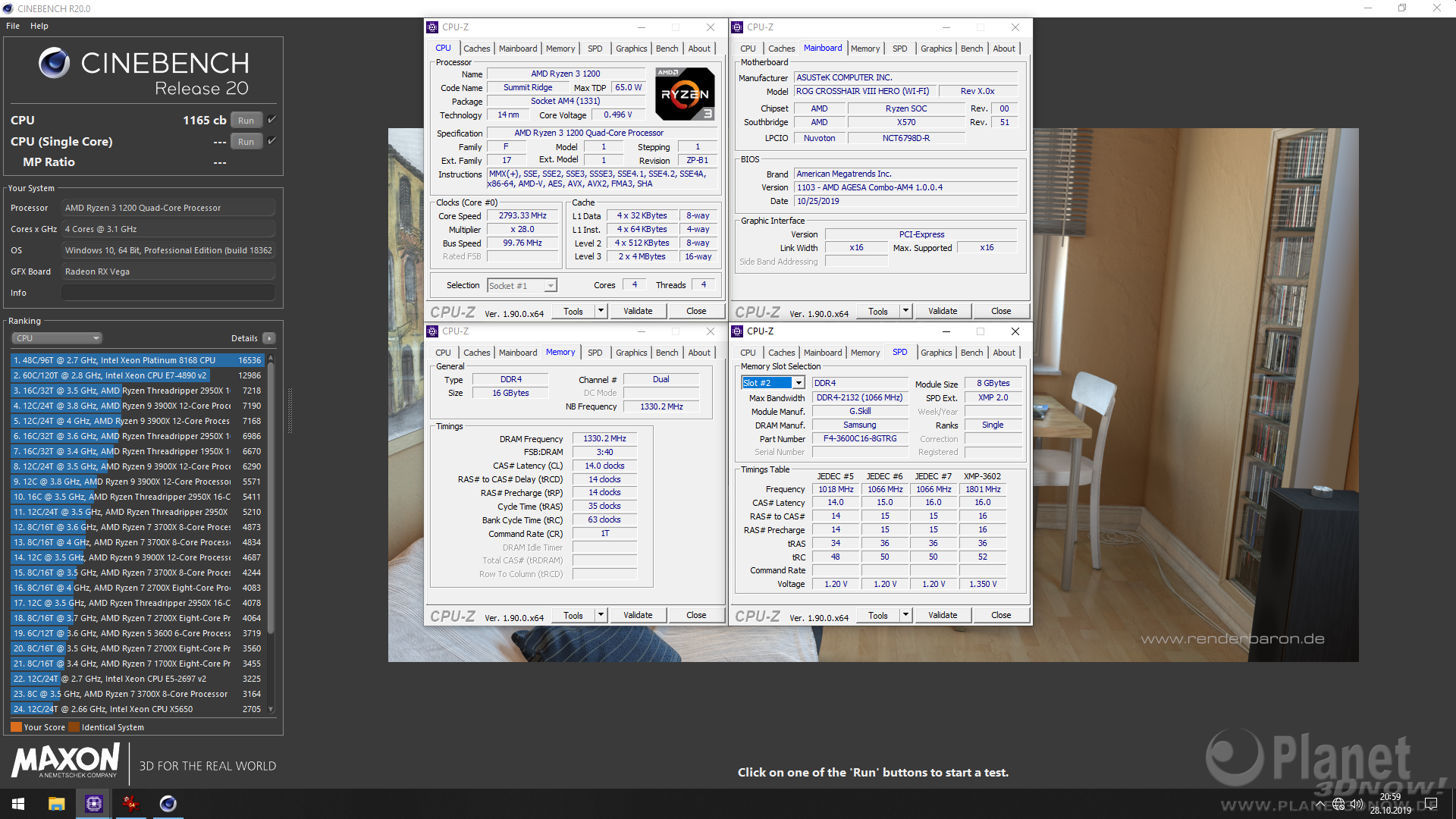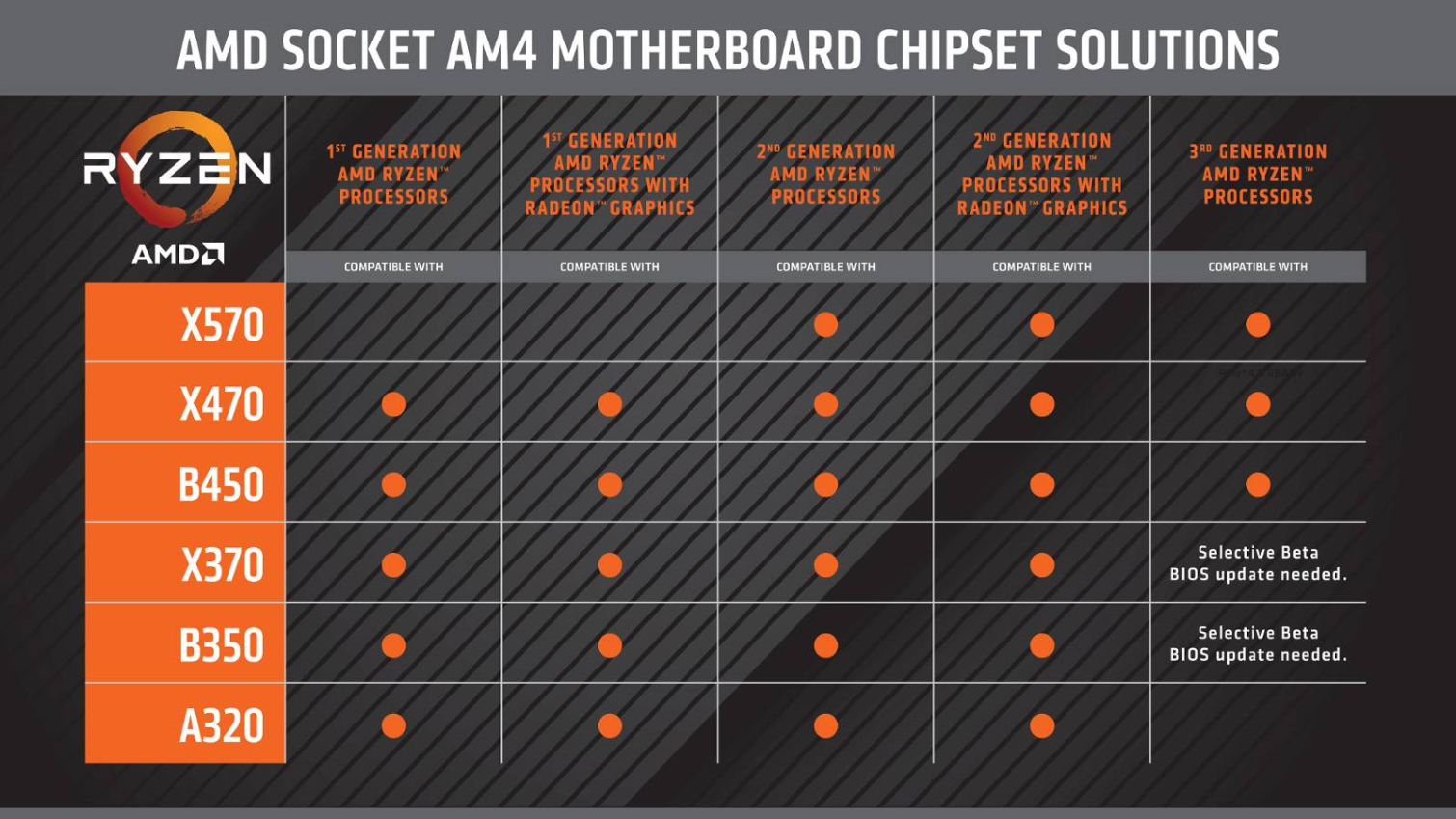AMD Ryzen 1000 CPU Spotted Running on X570 Motherboard
This was supposed to be possible. Then it wasn't. But now it seems like it is?
In May, things got messy when we learned that motherboards with the AM4 CPU socket wouldn't support 1st-generation AMD Ryzen CPUs, going back on AMD’s promise of full backwards compatibility. It appears, however, that the latest AGESA firmware for motherboards with the AMD X570 chipset might just change that.
The point of the new AGESA 1.0.0.4 microcode was to bring improvements to Ryzen 3000-series platforms, reportedly cutting boot times by about 20-30% and increasing all-core boost clocks.

This week, German publication Planet 3D Now reportedly got its hands on the 1103 beta BIOS, (which contains the 1.0.0.4b AGESA), for the Asus Crosshair VIII Hero (Wi-Fi) motherboard and mated it with a rather unlikely partner: an AMD Ryzen 3 1200. This combination isn’t supposed to work, but apparently it booted up just fine and they even managed to validate the setup in CPU-Z. The publication noted that they also tried this combination on an older BIOS without success.

What exactly this experiment means for the backwards compatibility across the range of AMD motherboards is uncertain. It's possible that more X570 boards will support first-gen Ryzen CPUs. However, we doubt that backwards compatibility of newer motherboards with older CPUs is what folks are interested in. We suspect more people are interested in having their older motherboards support the latest CPUs.
Thankfully, some older AM4 motherboards will, indeed, support AMD’s latest CPUs, as Robert Hallock, AMD Senior Technical Marketing Manager, explained in May: "If we look across the ecosystem of motherboards that exist today, we certainly make BIOS updates available to our ecosystem partners to include that on different levels of motherboards in their portfolio, but I don't expect that every motherboard will be updated for 3000-series processors from our partners. That really will be a portfolio decision from their standpoint as well, as to where they apply those updates, and where they choose not to apply those updates."
Get Tom's Hardware's best news and in-depth reviews, straight to your inbox.
Niels Broekhuijsen is a Contributing Writer for Tom's Hardware US. He reviews cases, water cooling and pc builds.
-
hannibal Well this is good news, though not very important, but still good thing!Reply
Amd really seems try to keep the compability in their socket. -
Thisiswes616 Is this really that special? I've been running an 1800x on a x570 Taichi for a week now...Reply -
bobalazs ReplyThisiswes616 said:Is this really that special? I've been running an 1800x on a x570 Taichi for a week now...
Nice! gg
